SNOW // 01 DEC 2023
PEOPLE LIKE US
Ketchum, Idaho. Crested Butte, Colorado. Revelstoke, British Columbia (B.C.). For a snow sports enthusiast, these tiny towns invoke stunning vistas of towering mountains and pillows of fluffy snow. A place where young athletes’ dreams of never ending winter can come true. At least, that’s the picture towns like Revelstoke paint. Of the nearly 8,500 people living in the shadow of Mt. Begbie, which communities does that mountain culture really serve?
As a gay man, skier and director Ryan Collins often felt that his queer identity didn’t mesh with the world of outdoor sports. He was left to wonder what exactly made him feel so uncomfortable. Collins sought to unearth the source of this discomfort in his debut film People Like Us.
This feeling of there being a clash between mountain sports and queerness was not always the case for Collins. Returning to his childhood province of Newfoundland after graduating high school, Collins ventured into the world of climbing. “That was my first introduction to the outdoor lifestyle and outdoor sports,” he explained. “It was a unique one since Newfoundland is such a small place and the media aspect of the outdoor industry doesn’t have much of an influence over there. There’s not much going on there in terms of professional outdoor sports. So [when] I got into climbing, I was pretty open about myself with everybody, and that was really nice.”
It wasn’t until Collins moved to B.C. to enroll in an outdoor education program that the darker side of mountain sports revealed itself. “There was definitely that aspect of elitism that came into play,” he said. “I was watching a lot more content and movies, and I got the impression that the outdoor sports industry actually wasn’t as accepting as I thought it was. For a long time, I basically recloseted myself when I moved back to B.C. Especially because when I went to school, all my new friends, we were all in outdoor courses. We were basically just outdoors for a number of years. I would just go away for a cigarette or something if people were being homophobic. If people asked if I had a girlfriend, I would kind of dodge the question.”
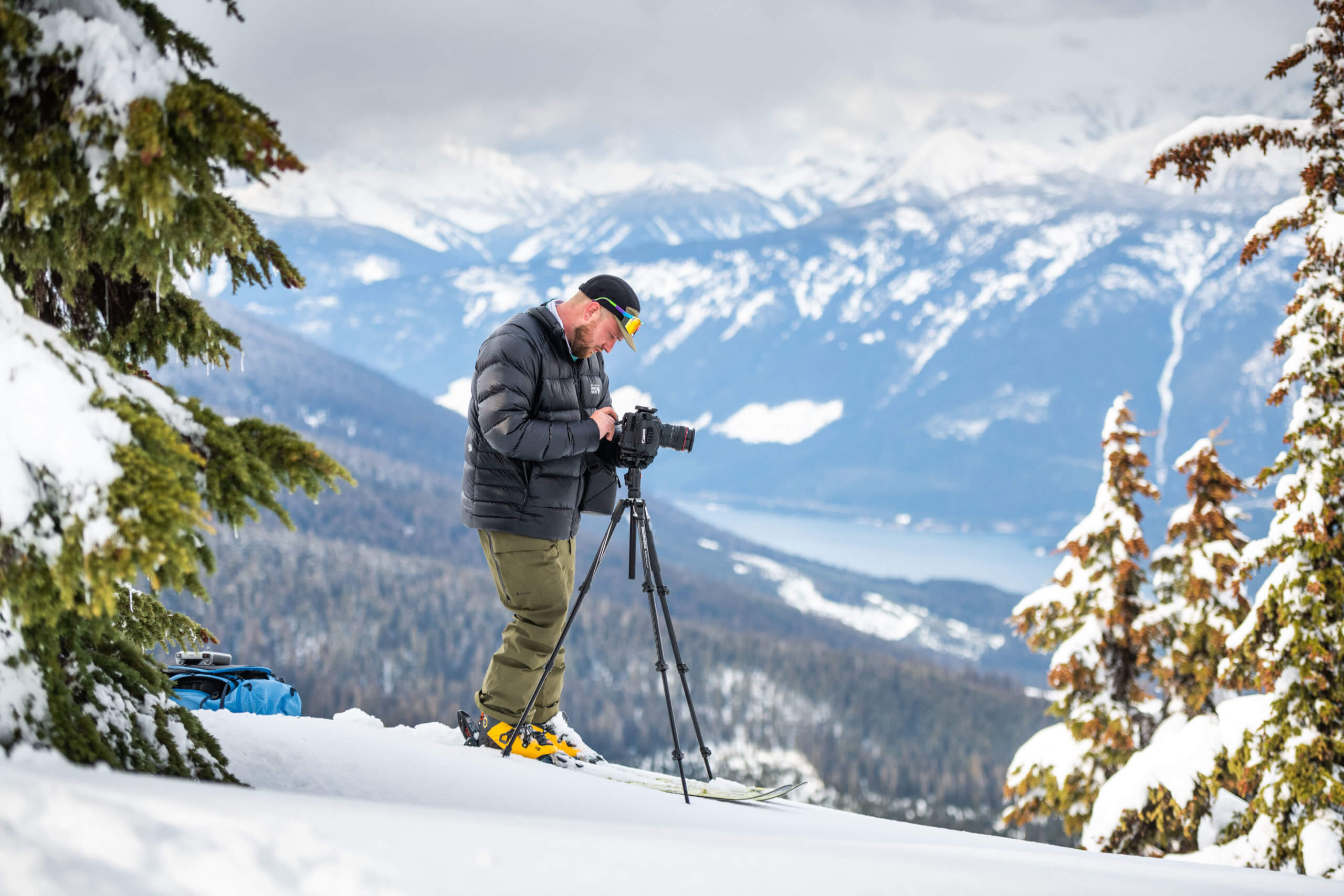
Climbing and mountain sports existed as a completely distinct entity from queerness in both Collins’ psyche and how he interacted with the world. The prospect of building a bridge between these two parts of himself seemed out of the question, until he rediscovered his love of photography.
“I was always into photography. I was the yearbook editor in high school and then [after I graduated] I didn’t really fuss around with it too much,” he explained. However, as Collins and his friends pushed their climbing grades, sending harder and more interesting routes, his mind wandered back to the camera. “I realized that the stuff that me and my friends were climbing was probably worth selling photos of. So I got back into photography.”
He continued, “I did some work in the climbing industry for a few years and then switched to surfing. I ended up back in B.C. during the pandemic, where I found myself in the ski industry. I worked with Katie Burrell for a number of years and then that’s when the videography came in. Colleen Gentemann mentored me in video editing and everything.”
Butter Mag is a 100% reader supported publication. By subscribing to Butter’s Patreon for as little as 2$/month, you keep Butter churning, so that together we can create a more diverse outdoor sports community.
By placing a camera between himself and the sport, Collins could separate himself from the toxic elitist culture that had become so suffocating. “Photography removed me from the actual athleticism part of [climbing] and allowed me to keep people that I didn’t want to have close relations with at an arm’s length,” he explained. “And people want photographers there, so I felt like I was accepted more than when I was just trying to climb and compete with everybody, which eventually led to me getting a bit more comfortable in opening up and trying to explore that dynamic [of being a queer athlete].”
Behind the lens, Collins was able to take the narrative into his own hands and slowly rewrite the story told in outdoor sports media. “You’re in control of what people are seeing and I think there’s a lot of power in that,” he said. “The whole representation movement is important, obviously, but I think [the creation of that representation] often gets put in the hands of people of the majority. When that’s the case, it’s really hard to have a genuine message because it’s the same people telling the same stories, just with different people that are being shot.”
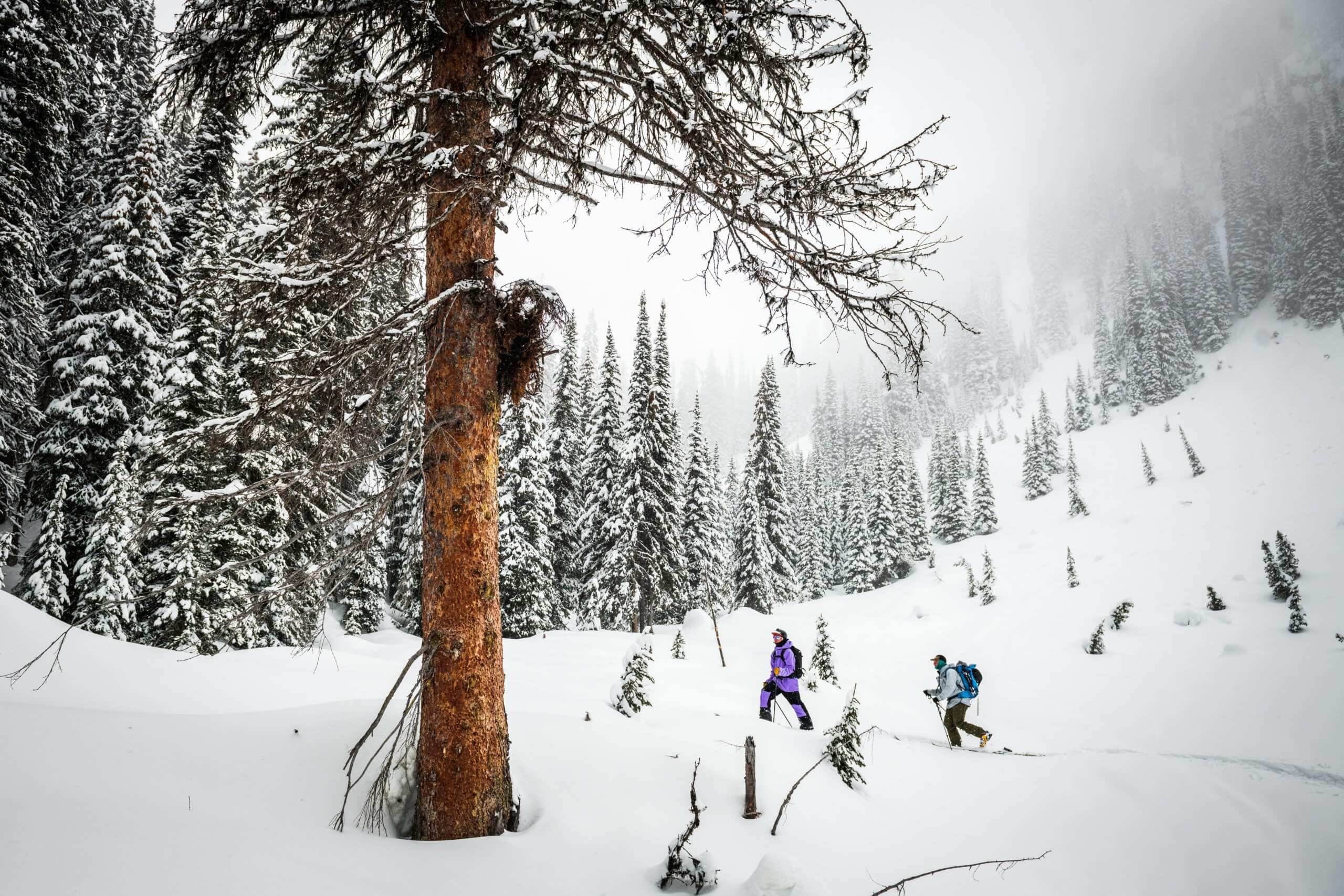
It was this desire to create outdoor media by queer people for queer people that sparked the initial idea for Collins’ film People Like Us. Yet, the recently released film was not his first iteration of the project. “I tried to do it once before in university and I did get some funding at the time, but I was so green to the media [landscape], at least the professional side of it all, that I was unconsciously incompetent on how to do it on my own,” he laughed. “It was a great opportunity. I traveled around and met up with a bunch of people and [the project] actually encompassed the larger outdoor industry. It had professional surfers, climbers, some ski guides, and another photographer and videographer. It ended up being more of an academic based and photography based project. The video aspect I just kind of flopped on honestly. But because of that, the project was always something that I wanted to revisit.”
So, with some new-found funding and newly acquired skills in videography, Collins picked up where his attempt in college left off.
Set in Revelstoke, People Like Us follows Collins as he connects with the local queer community, gathering their opinions and experiences existing within mountain cultures, particularly those living in rural communities. Because, for many queer individuals, living in remote mountain towns, such as Revelstoke, becomes a conflict between passion and identity. “ I think queer individuals in rural areas have a different experience than those who live in larger metropolitan areas,” Collins explained. “I’m trying not to over generalize, but a lot of queer individuals move to cities when they graduate high school or college because they know that there’s a larger community of people that are like them there. There’s safety in numbers, and a comfort in having that kind of community in a city. Cities [are also] generally a little more liberal or you can at least find more liberal pockets.”
He continued, “When it comes to rural communities, there’s a lot of industry that fueled these smaller towns for such a long time, and that [fosters] more of a blue collar dynamic. So, you already have the impression of conservative values at play. Then you bring mountain culture into it and you have this elitism and machismo that also gets interwoven. Then these two communities that, although they’re quite different, feed off each other in an interesting way. I would say that for queer people in those industries, especially when you’re in town where maybe you’re one of like three or four out gay men, like me, or you’re the only trans person in town, I think it’s really easy to feel like you’re alone in that. There’s a lot of closeted individuals in these towns and I think that’s a reflection of the situation. You definitely experience bigotry for sure.”
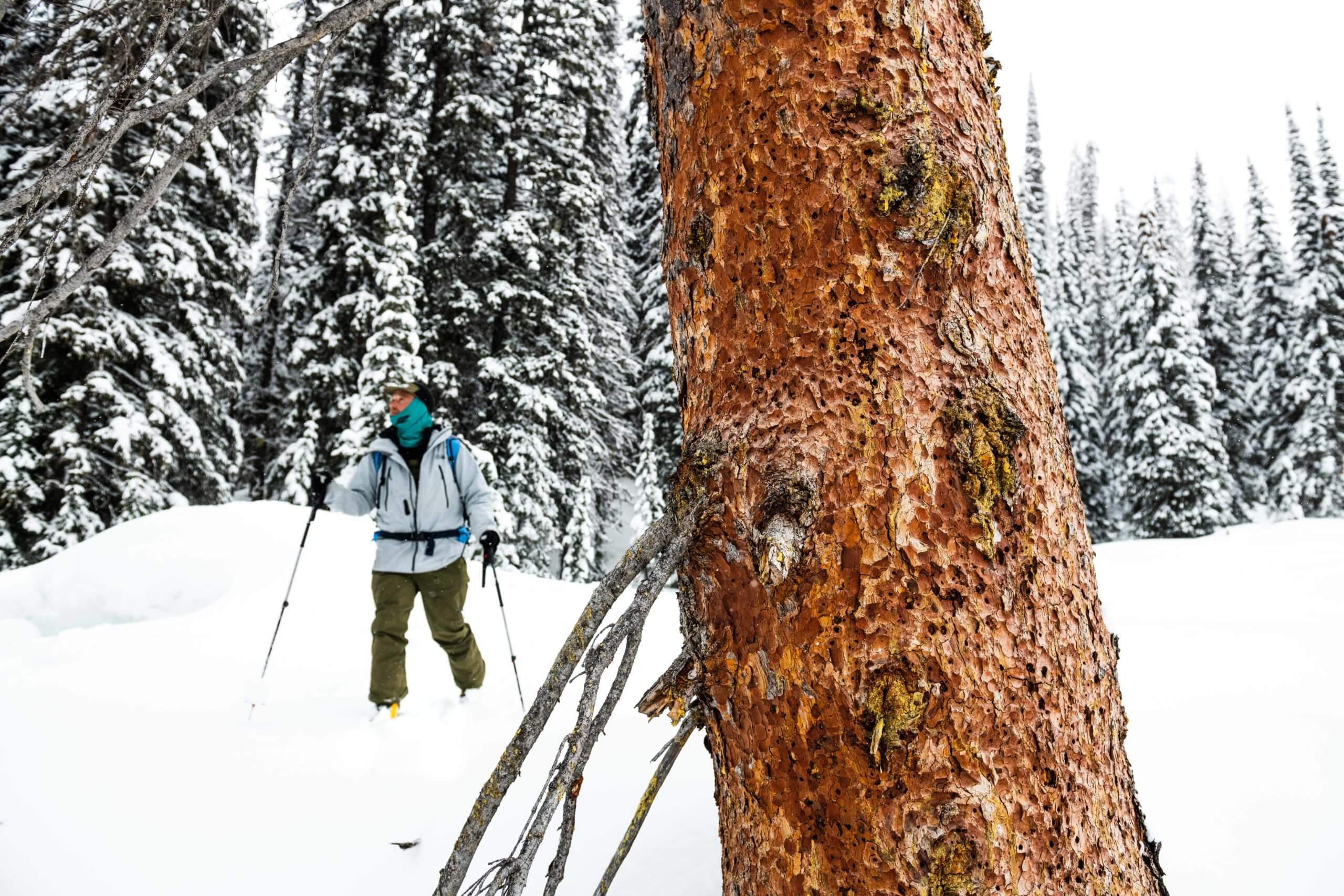
People Like Us opens with Collins reiterating these experiences of solitude. Through sweeping shots of athletes carving down mountainous chutes contrasted with up close, personal interviews, the viewer joins Collins in a narrative that begins in isolation and ends with community. Showcasing styles from big powder snowboarding to goofy group ski days, the film highlights the power found in coming together and the hope that power brings. It comforts young queer athletes, assuring them that they are not alone.
The cast is split with half of the athletes local to the Revelstoke area, and the others visiting for the season. Collins explained, “We brought in Hank [Stowers] because we didn’t have any other more prominent athletes to bring that [competitive] perspective into play at first until we found a way to work with Lily [Bradley]. Other than that, we were planning on [keeping it to] people who can speak to [the experience of living in a rural community while being queer]. Maybe not Revelstoke exactly, but other Revelstokes. Bruce is from Pemberton and they’re very similar towns.”
Curating the cast of People Like Us was a bit of a Catch-22 situation for Collins and the production team. While the purpose of the documentary is to showcase the small and otherwise unseen queer community in Revelstoke, it greatly reduced the diversity of athletes that fit the profile for the film. “It was an interesting line to toe between wanting to tell the broader story of queer people in the outdoors, you know, because there’s [a diverse array] of queer people that live in San Francisco that engage in the industry,” explained Collins. “[Whereas] Revelstoke has a largely white population, especially for people that are on the hill. We also don’t have a large trans or non-binary trans population. It really did limit [the range of diversity] we could include in the film. In an unfortunate way, [that struggle is] a direct reflection of the community of Revelstoke and the kind of people that are willing to stay in rural communities.”
He continued, “I know of plenty of other queer people that have lived in Revelstoke, but they’ve all moved away. I think that the people that stay long term are a reflection of who this town and other mountain towns currently serve.”
Still, even with its constraints, Collins couldn’t help but smile as he reflected on his days connecting with the film’s other athletes on the slopes. “We had a couple of really good days shooting with Hank. Their riding style, I really love. I definitely had a lot of moments watching Hank ski that left an impression,” he said. “I think the best day of shooting was with Jazz. It was one of the more standout days for me because it felt so comfortable and homelike. We were tree skiing in Revelstoke, we had just gotten a foot of powder and the people I was shooting with were all my friends. We had such a beautiful day out skiing together and in amazing conditions.”
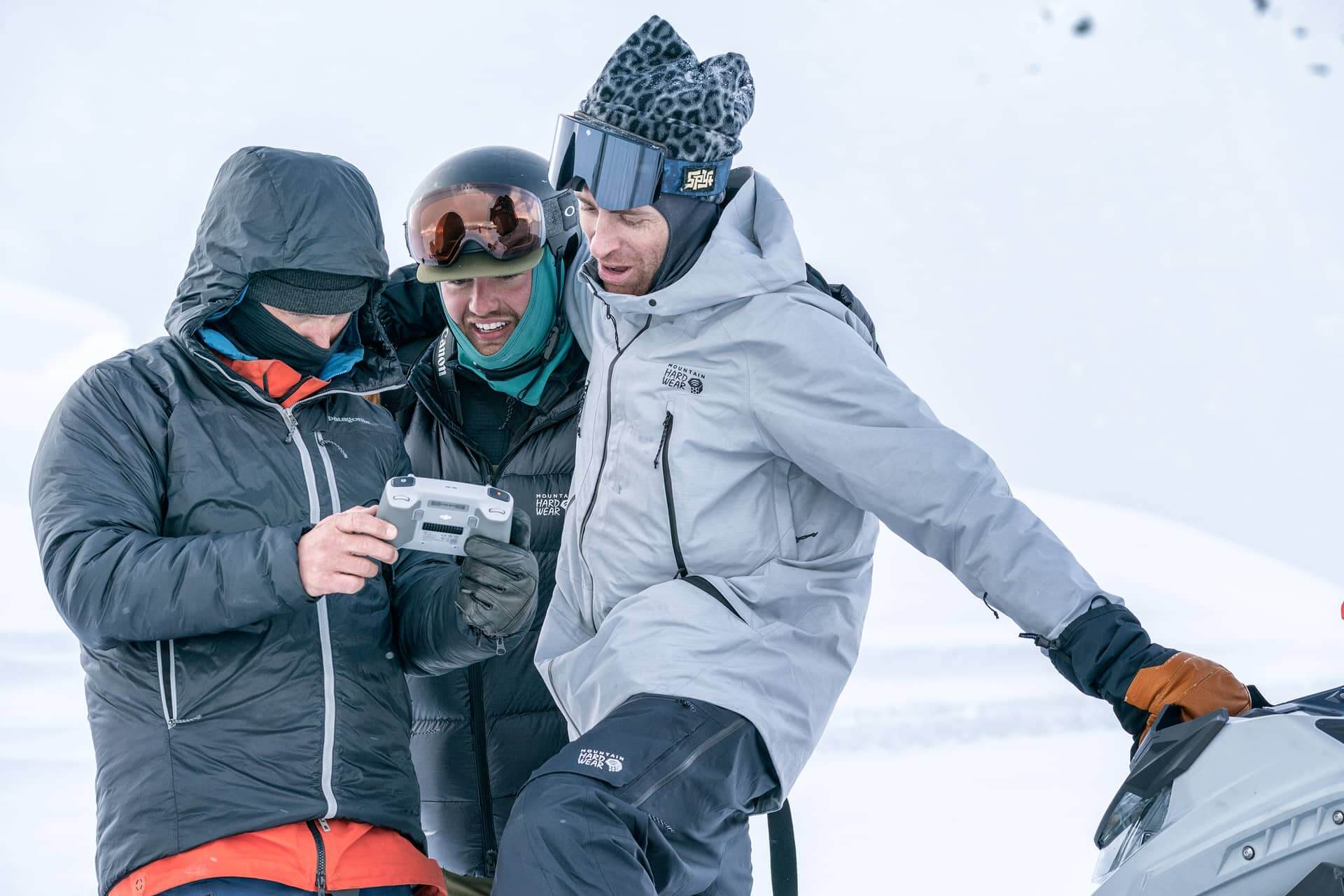
“Shooting with Bruce and Pemberton was also gorgeous. The weather was really nice and the mountains out there are just pristine. I think that whole day would be a blooper reel of me being so out of my depth. Big Pemberton mountains, trying to keep up with these guys who sled all the time. Nat [Segal], [the producer], wants to make a video from the day with Bruce called: Shit Gay Guys Say On The Mountain. I’m a smoker, unfortunately and I was so nervous because Bruce wanted me to ski down this line that I was so uncomfortable with. [So I was just] chain smoking at the top of this mountain. He’s like, ‘what the fuck is going on?’ I had forgotten my goggles. So he gave me his sunglasses and then I whited out as I skied off a cliff,” he laughed. “It was a funny day.”
Though, perhaps what left the biggest impression on Collins were the conversations that happened off the mountain. “I think aside from Hank and Lily, who are [used to] holding more advocate style roles in the industry, the other participants in the film are more reserved with their sexual or gender identity or are not used to being on the other side of a camera at all. Each of those interviews had some really vulnerable and powerful moments because people were so open and committed to the project.”
Enjoying this article? Consider subscribing to our Patreon for as little as 2$/month to ensure we can keep sharing more stories like this in the future!
As a ski movie, People Like Us obviously has lots of talented people being very talented at skiing. While Collins is excited to highlight previously hidden skills, what he hopes more than anything is that the film will serve as a conversation starter for those in the snow sports industry. “In Lily’s interview, she had a great quote that didn’t get used where she said, a lot of the times, people just need to kind of be confronted with how their day to day life is maybe a little bigoted, or how they are existing in a way that other people are impacted by, and being confronted by that in the slightest bit can help shift the conversation,” said Collins.
Looking forward, Collins hopes to push that conversation through future projects. In particular exploring the current state of trans athletes in competitive athletics. “Through interviewing, it helped confirm something I already knew, that a lot of people feel uncomfortable in the outdoor industry. I definitely learned that there’s a difference in representation that’s happening amongst queer people. This isn’t just in the outdoors, but in a broad sense cis-gay and cis-lesbian people have gotten the bulk of the attention, at least in a way that when we consider acceptance. I think trans people are facing a lot of vitriol in the sporting world right now and it’s reflected in whose stories are getting told for sure,” he said.
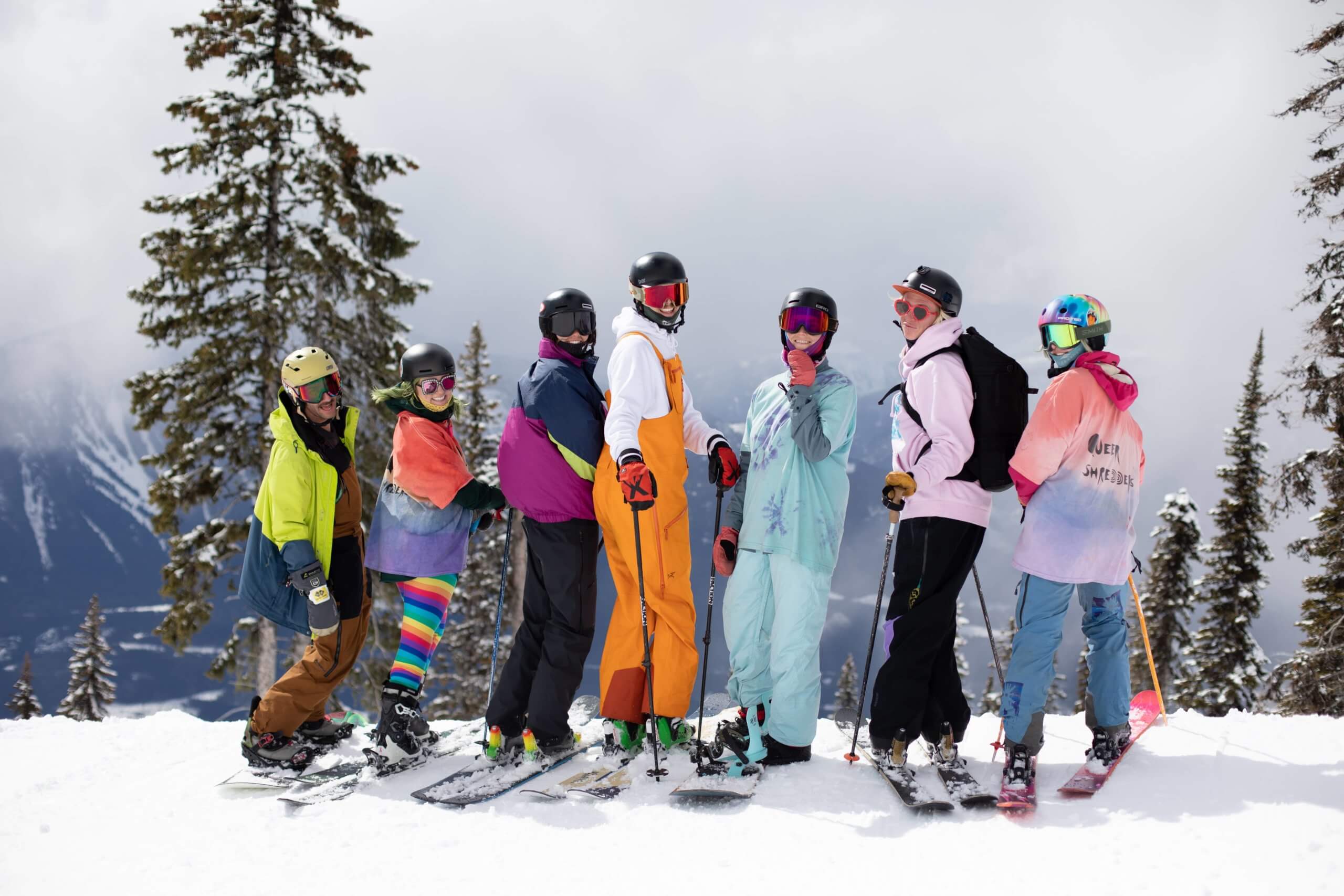
“After this film, I want to explore trans experiences in outdoor spaces in terms of competition. We had some really great discussions with Hank surrounding the treatment of trans people right now in organized sports. I would like to do projects that focus on maybe one or two people and maybe don’t have so many stories going on, get more into the nitty gritty. There’s some poignancy there that’s hard to achieve when you have so many participants.”
By taking the narrative into his own hands, Collins works to rewrite the experiences of the next generation of queer outdoor enthusiasts. Creating media that welcomes all athletes, instead of ostracizing through idealized elitism. “People [need to be] a little more critical of the media that they’re watching and [think about] who that media is serving because the media that we currently have doesn’t even serve 90% of the people in the ski industry at all,” Collins said. “I mean, you’re just watching people do things that you cannot do and you will never be able to do. This industry is just feeding off of your desire to be that person. I think that [type of] media is not healthy for anybody, really. So I think people [should be] more critical of the kind of stories that they’re looking at and [think about] who else should be getting attention. [That’s something] I’d like people to take away [from People Like Us].”
For those interested in screening People Like Us, reach out through this link. If the event showing the film is a fundraiser for a queer organization, there will be no charge to run the film.
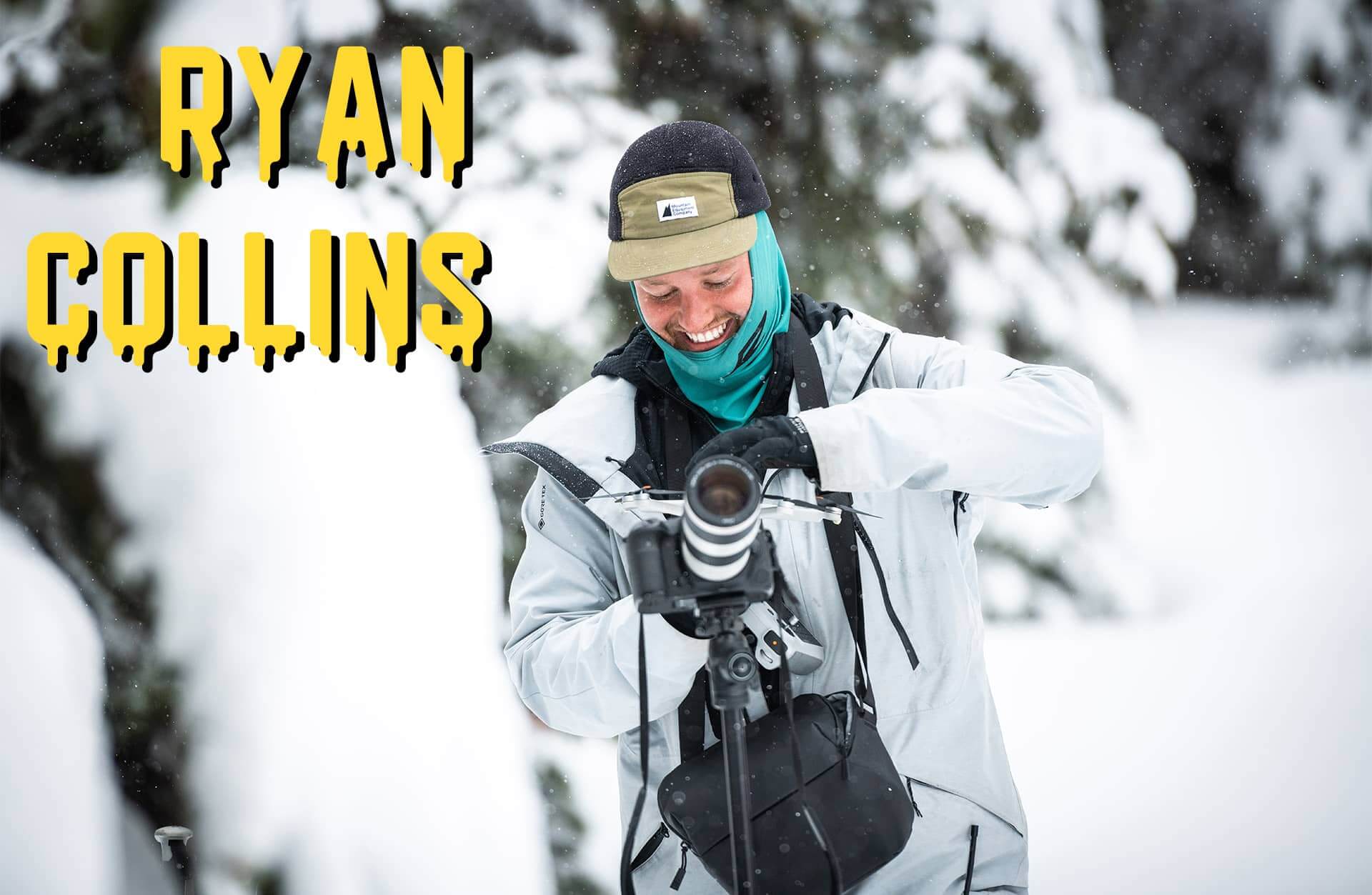

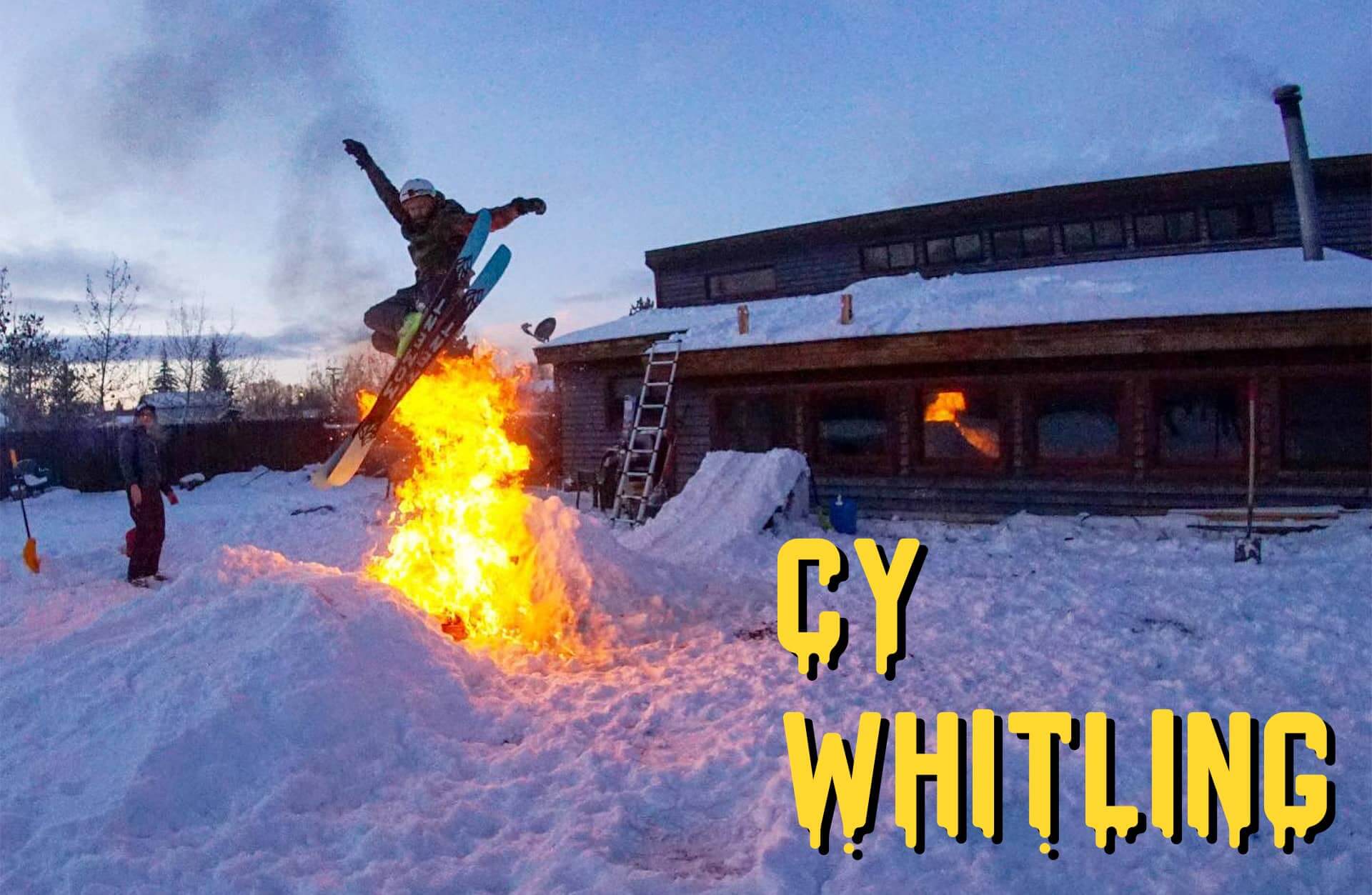
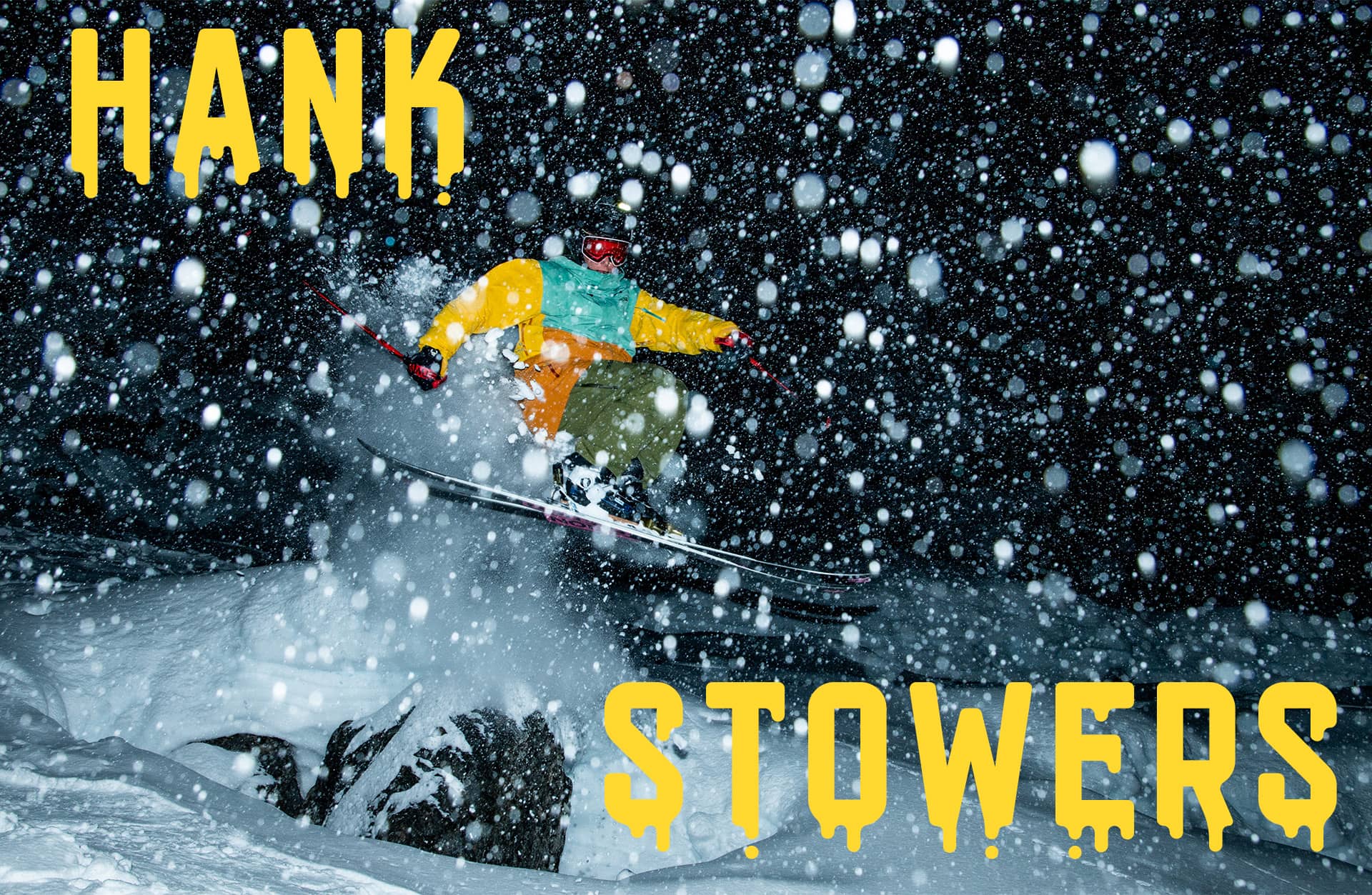
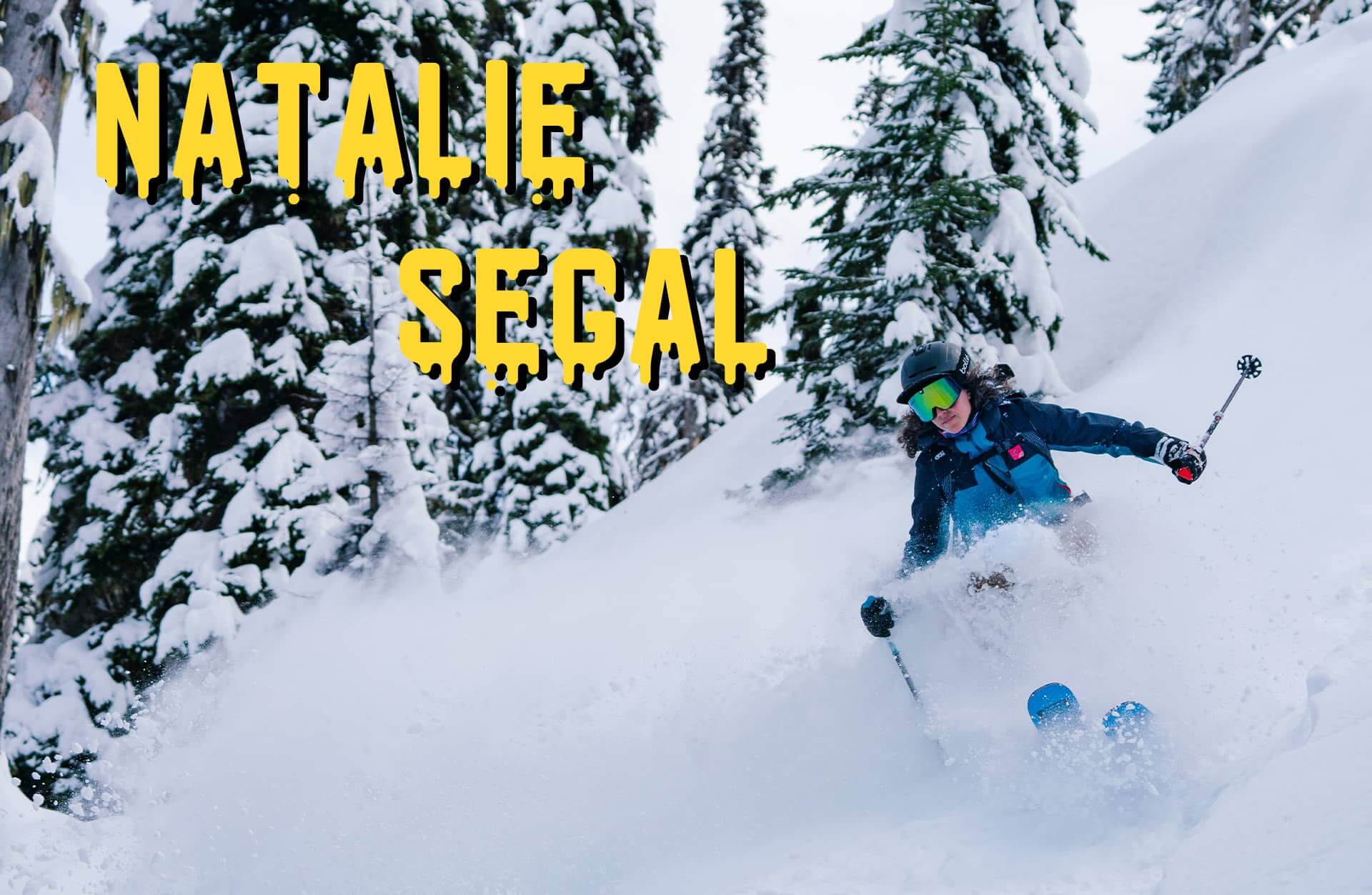

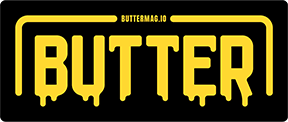
One thought on “Ryan Collins”